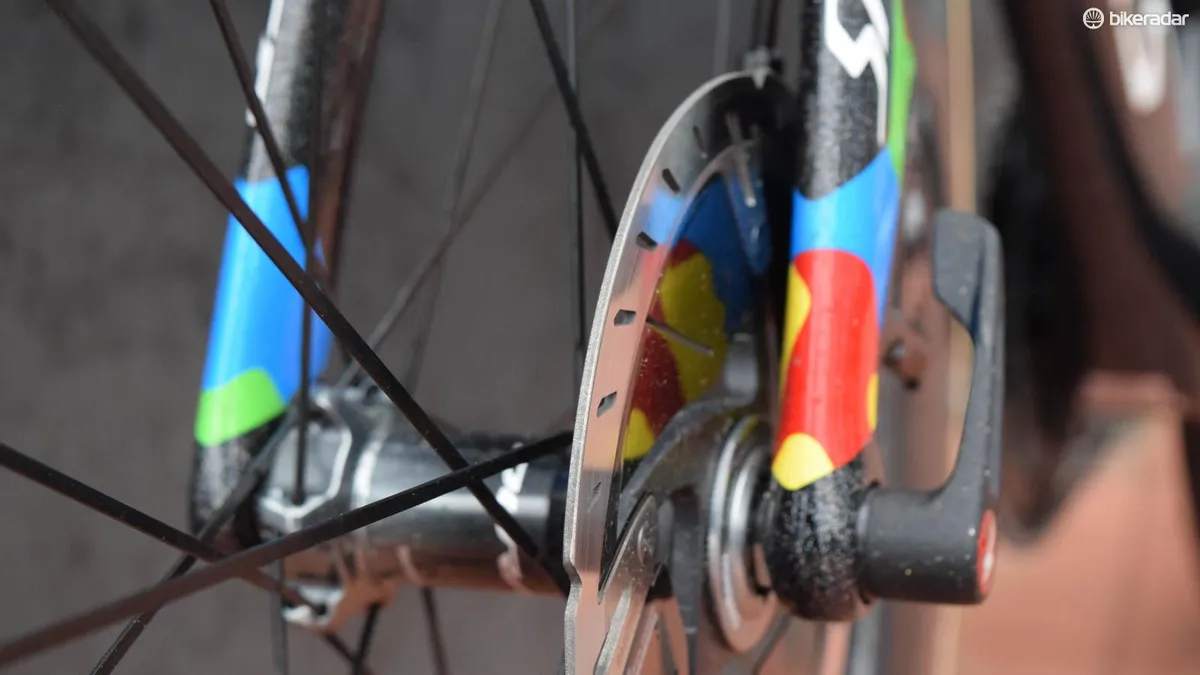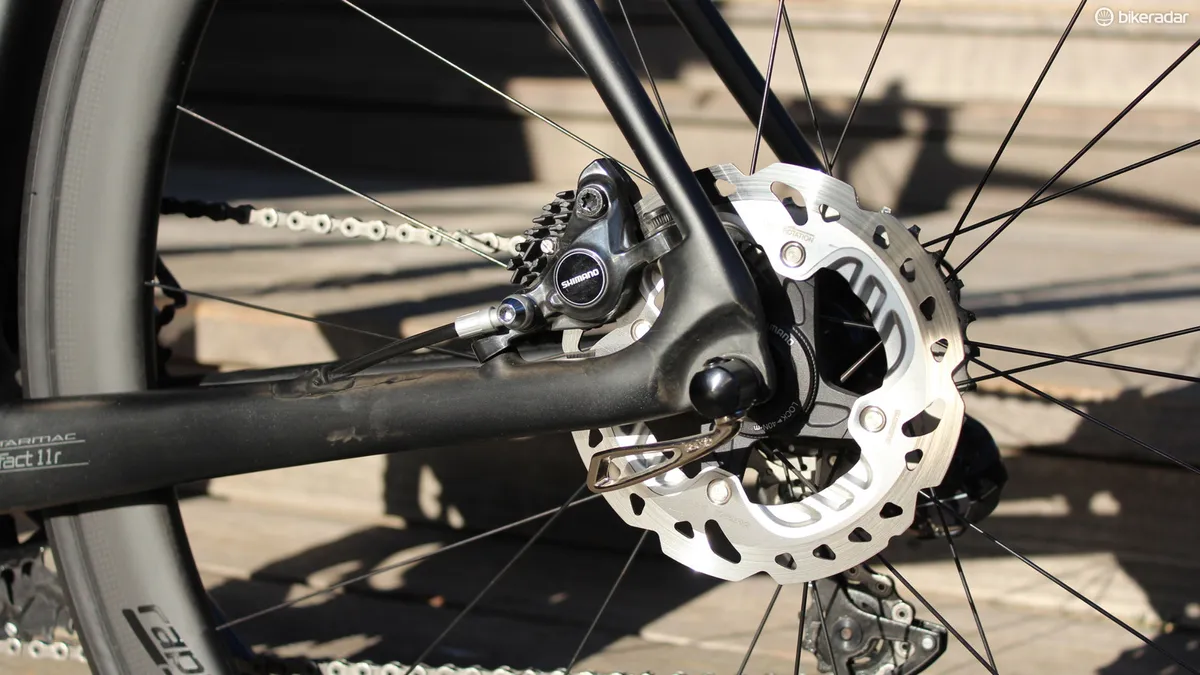The UCI confirmed in a press release yesterday that disc brakes will be authorised for use in road (and BMX) racing as of July 1st, after years of fits and starts that saw them approved on a trial basis, temporarily re-banned, and then approved once again.
- Are road disc brakes dangerous?
- Could disc brake guards be the solution (to a problem that may not exist)?
- How to watch the 2018 Tour de France live
The release, which covers the UCI’s Agenda 2022 — a four year strategic road map for the organisation — reads: “Following nearly three years of tests, and in agreement with various stakeholders — teams, riders, mechanics, fans, commissaires, and the bicycle industry via the World Federation of the Sporting Goods Industry (WFGSGI) — the decision has been taken to authorise disc brakes for road and BMX Racing, as of 1st July this year. Point 1.3.025 of the UCI Regulations will be amended to this effect, to allow the use of disc brakes during training and competitions for road and BMX Racing, as is already the case for cyclo-cross, mountain bike, trials and mass participation events.”
Despite hiccups along the way including a temporary ban on discs following a rider injury at Paris-Roubaix in 2016, this decision feels all but inevitable as discs’ gradual takeover continues.
Disc brake trials resumed in the pro peloton in January 2017 with the rules updated to include a requirement that disc rotors be manufactured with chamfered edges rather than a sharp 90-degree design.

The 2017 Tour de France saw history made as sprinter Marcel Kittel became the first rider to win a Grand Tour stage on a disc-equipped bike and a rider took on the TT with a fully-rotored Cannondale Super Slice.
Here at BikeRadar we’re big fans of disc brakes but we also recognise that rim brakes still have a place and probably aren’t going to disappear anytime soon.
Do you think discs are suitable for mass start racing? Vote in our poll and let us know what you think in the comments below.
null

